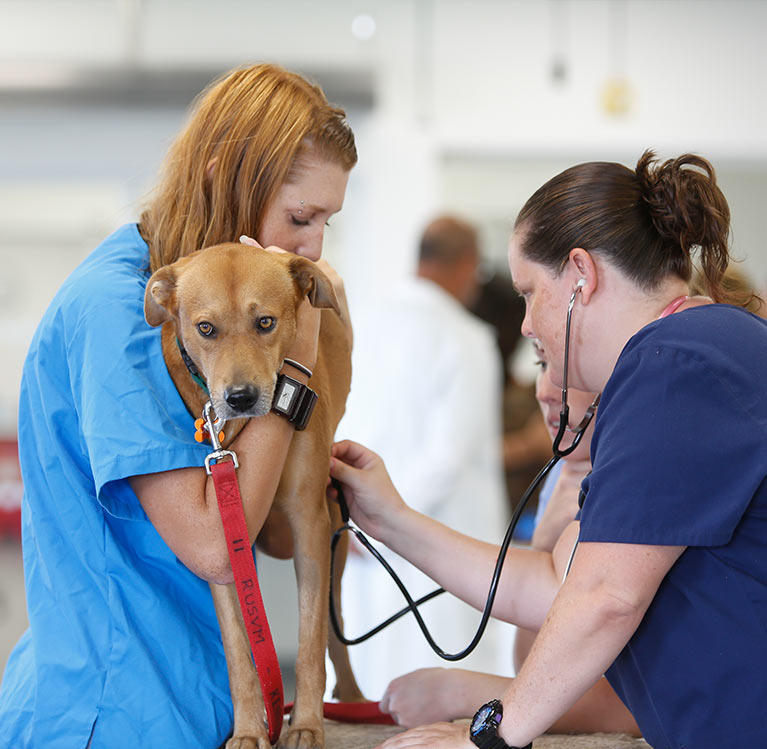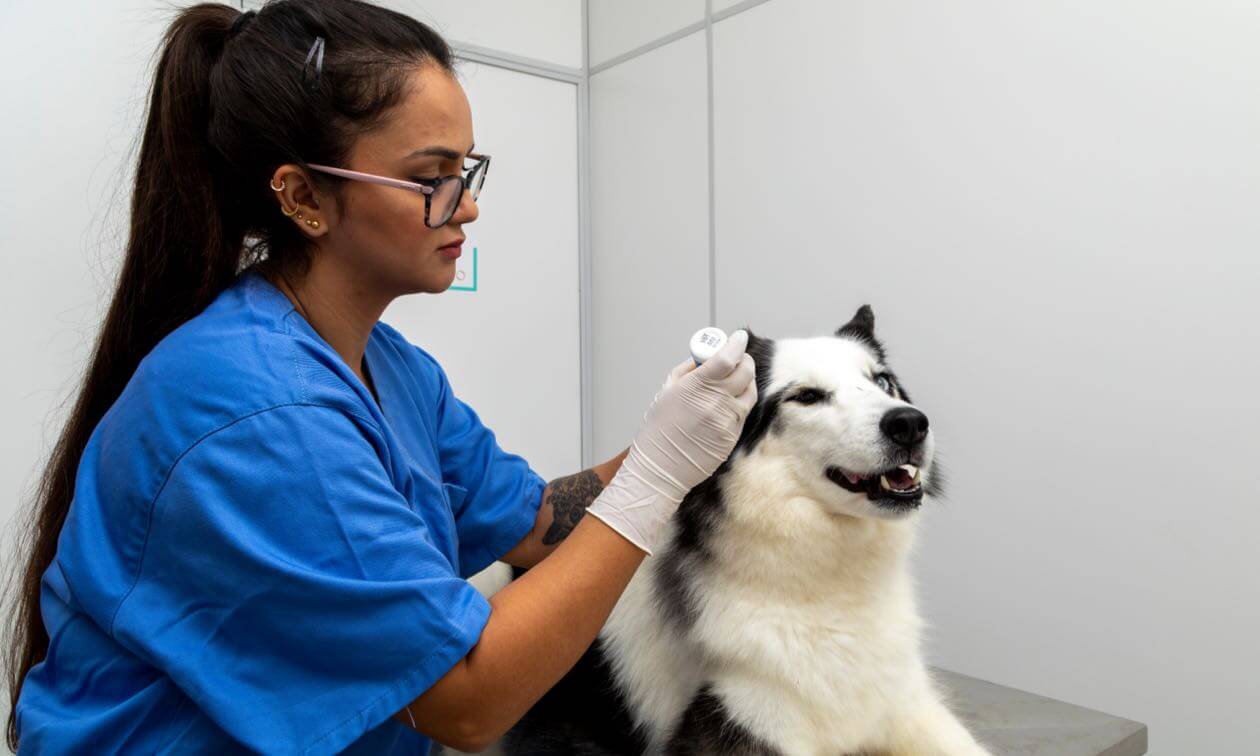Vaccination Standards From Your Trusted Veterinarian
Vaccination guidelines provided by your trusted vet play a vital role in safeguarding your animal's health and well-being. Additionally, addressing common misconceptions bordering vaccinations can additionally improve family pet owners' self-confidence in these preventive steps.

Importance of Vaccinations
Inoculations play an essential role in guarding pet dogs versus a series of avoidable conditions. By promoting the body immune system to acknowledge and combat particular virus, vaccines dramatically reduce the incidence of contagious conditions that can affect a pet dog's health and long life. Not only do vaccinations shield private pets, but they likewise add to herd resistance, consequently reducing the general frequency of diseases in the family pet populace.
Timely inoculations aid to mitigate the spread of illness such as rabies, parvovirus, and distemper, which can have extreme consequences for both people and pets. Vaccinations are commonly a need for boarding facilities, grooming services, and canine parks, making them necessary for those that wish to socialize their animals.

Core Vaccines for Family Pets
While the details inoculation requirements of pets can vary based upon private variables, core vaccinations are generally recommended to secure against one of the most significant and common conditions (Vet Enterprise). Core injections are those deemed essential for all animals, regardless of their way of life or geographical place, as they protect versus possibly fatal and very contagious ailments
For pet dogs, the core vaccinations consist of those for canine distemper, parvovirus, adenovirus (hepatitis), and rabies. Adenovirus can result in liver illness, while rabies is a zoonotic illness that postures a risk to both human beings and pet dogs.
In cats, core vaccines include feline panleukopenia, feline calicivirus, feline herpesvirus (rhinotracheitis), and rabies. Feline panleukopenia is an extremely transmittable viral condition that influences the immune system and intestines. Calicivirus and herpesvirus are major contributors to upper respiratory infections in felines, while rabies stays an essential problem for public health.
Consult with your veterinarian to ensure your pets receive their core vaccinations on schedule.
Non-Core Vaccines Explained
Non-core vaccines are tailored to address specific risks connected with a pet's setting, exposure, and lifestyle to specific illness. Unlike core vaccines, which are universally recommended for all pets, non-core vaccinations are taken into consideration based upon individual circumstances. These vaccines are specifically essential for pets that may encounter one-of-a-kind virus because of their geographical location, traveling routines, or activities.
Instances of non-core injections include those for Bordetella bronchiseptica, which is connected to kennel cough, and Lyme disease, brought on by ticks. Pet dogs that often interact with various other animals, such as those in boarding centers, pet dog parks, or grooming settings, may profit from Bordetella inoculation. Likewise, if you live in a location where Lyme disease prevails, vaccinating versus this illness can be a prudent option for outdoor-loving canines.
Various other non-core vaccines might include those for leptospirosis, canine influenza, and feline leukemia, depending on the certain risk aspects present. It is important to have a complete discussion with your veterinarian concerning your pet dog's way of living and the prospective demand for these vaccines, making sure a tailored vaccination method that ideal safeguards your hairy pal.
Inoculation Schedule Introduction

As animals mature, it is very important to abide by Click Here the suggested booster vaccinations. Veterinarian Enterprise. For grown-up pets, core vaccines are typically offered every one to three years, relying on the certain vaccine and neighborhood laws. Non-core injections may be suggested based on lifestyle variables and local condition frequency, demanding a tailored strategy
Normal vet examinations are critical for updating inoculation timetables. Your vet can provide guidance on one of the most proper immunizations for your pet, factoring in age, health standing, and ecological dangers. By staying proactive and educated, animal proprietors can guarantee their fuzzy buddies get efficient and timely inoculations, consequently protecting their health discover here and well-being throughout their lives.
Usual Myths Concerning Vaccinations
Misconceptions concerning pet dog inoculations can lead to complication and unwillingness among animal owners pertaining to the booster shot process. One prevalent misconception is that injections are unnecessary for interior pet dogs. While it holds true that interior family pets face lower dangers, they are not completely unsusceptible to diseases, as virus can be presented via numerous means, including human clothing and various other pet dogs.
One more false impression is that vaccines can create the illness they aim to stop. In truth, most vaccines include inactivated or undermined virus, which can not cause condition in healthy pets. Some pet proprietors additionally think that their family pets should not be vaccinated if they are already healthy; nonetheless, vaccinations are an aggressive step that aids avoid the beginning of ailment.
Additionally, several pet proprietors are afraid that vaccines will lead to long-term health and wellness difficulties. The benefits of vaccination-- safeguarding pets from possibly dangerous diseases-- far outweigh the risks.
Verdict
In summary, adherence to inoculation standards is crucial for making sure the health and long life of pet dogs. Dispelling usual myths bordering vaccinations additionally reinforces the significance of informed decision-making in animal care.
Not only do inoculations safeguard individual pets, yet they likewise add to herd immunity, thereby this article decreasing the overall occurrence of conditions in the pet population.
Misconceptions regarding pet vaccinations can lead to confusion and unwillingness among pet dog owners concerning the immunization procedure. While it's true that indoor animals face reduced threats, they are not totally immune to diseases, as microorganisms can be introduced via different methods, consisting of human clothing and various other pet dogs.
Some animal proprietors additionally think that their animals need to not be vaccinated if they are already healthy; nevertheless, vaccinations are a proactive procedure that assists prevent the beginning of illness.
The advantages of inoculation-- safeguarding animals from possibly deadly conditions-- much exceed the risks.
Comments on “The Duty of Pet Vaccinations in Stopping Serious Health Conditions for Your Pets”